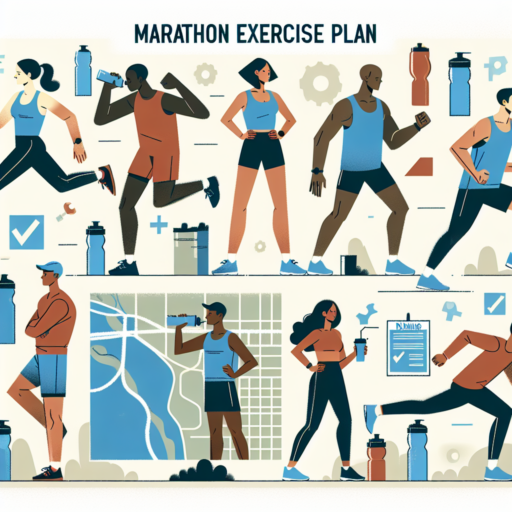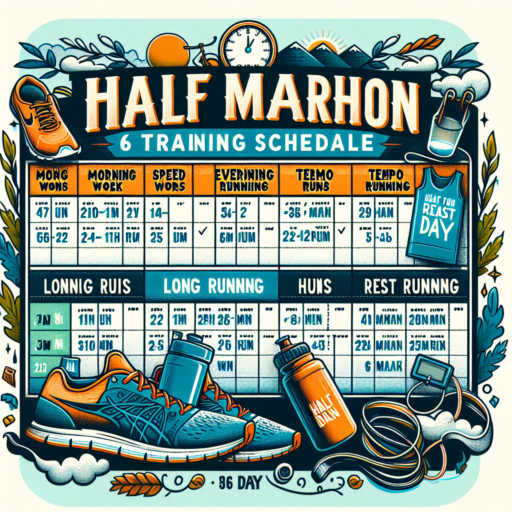Can you be marathon ready in 12 weeks?
Preparing for a marathon is an ambitious goal, especially if you’re working with a 12-week timeline. Conventional training wisdom suggests that runners, particularly those new to the marathon distance, benefit from a longer preparation period. However, with focused training, proper nutrition, and adequate recovery, becoming marathon ready in 12 weeks is certainly within the realm of possibility for some runners. It’s crucial to understand the commitment and physical demand this endeavor requires.
Understanding Your Current Fitness Level
The feasibility of preparing for a marathon in 12 weeks heavily relies on your current fitness level. Individuals who already have a solid running base may find this timeframe challenging yet achievable. In contrast, beginners or those with limited running experience may need to adjust their goals. It’s important to assess your fitness realistically and perhaps consult with a running coach to tailor a plan that suits your capabilities and goals. Starting from a strong fitness foundation mitigates the risk of injury and increases the likelihood of successfully completing the marathon training in a shortened timeframe.
Essential Components of a Shortened Marathon Training Plan
An accelerated marathon training plan should encompass several key elements to ensure you’re developing endurance, speed, and resilience efficiently. These elements include:
- Long Runs: Gradually increasing your long run distance each week is essential for building the endurance necessary for a marathon.
- Speed Work: Incorporating intervals, hill repeats, or tempo runs help improve your running economy and pace.
- Recovery: Adequate rest and active recovery are paramount to prevent overtraining and injuries.
- Cross-Training: Incorporating activities such as cycling, swimming, or strength training can enhance overall fitness without additional running-related stress on your body.
Every runner’s body reacts differently to increased mileage and intensity, making personalized adjustments and close attention to your body’s responses critical to a successful marathon preparation.
Can you get marathon fit in 3 months?
Embarking on the journey to train for a marathon is an ambitious endeavor, especially with a tight timeframe of just three months. The question of whether it’s feasible to get marathon fit within this period depends on various factors, including your current level of fitness, dedication to training, and overall health. It’s crucial to approach this challenge with realistic expectations and a strategic plan.
Understanding the Basics of Marathon Training
Marathon training involves much more than simply running long distances. It includes intervals, tempo runs, long-distance runs, strength training, and importantly, rest days. For beginners, starting from scratch, getting marathon fit in three months poses a significant challenge. It’s essential to gradually increase your mileage, allowing your body to adjust to the new demands without risking injury.
Personalizing Your Training Plan
Every runner’s body responds differently to training. Some might find rapid improvements in their fitness levels, while others may progress more slowly. Personalizing your training plan according to your current fitness level, and incorporating cross-training activities like cycling or swimming, can help build endurance and muscle strength, essential for a marathon. Listening to your body and being willing to adjust your training plan as needed is critical.
Ultimately, achieving marathon fitness in such a short period requires dedication, discipline, and a well-thought-out training strategy. It’s also important to consult with a professional to ensure your plan is realistic and tailored to your specific needs, minimizing the risk of injury and maximizing the effectiveness of your training.
No se han encontrado productos.
Can you go from couch to half marathon in 12 weeks?
Embarking on the journey from being a couch potato to running a half marathon in 12 weeks is a formidable challenge that requires discipline, dedication, and a well-structured training plan. This transformation is not only about improving your physical endurance but also about enhancing your mental toughness. The question isn’t merely whether it’s possible, but rather, how can you effectively prepare your body and mind for such an endeavor?
Understanding Your Starting Point is crucial in this journey. Assessing your current physical fitness level is the first step. For complete beginners, it is essential to start slowly to avoid injuries and gradually build up your stamina. Incorporating a mix of runs, walks, and rest days in the initial weeks can set a solid foundation for more intense training required later on.
Nutrition and Hydration also play a significant role in preparing for a half marathon. Eating a balanced diet and staying well-hydrated are key to fueling your runs and aiding in recovery. Integrating meals rich in complex carbohydrates, lean proteins, healthy fats, and plenty of fruits and vegetables is essential for providing the energy needed to sustain your training regimen.
Moreover, integrating crosstraining activities, such as cycling, swimming, or yoga, can enhance your physical conditioning by improving your overall strength, flexibility, and reducing the risk of injury. These activities complement your running routine and contribute to a more holistic approach to your fitness and preparation for the half marathon challenge.
How to train for 21km in 3 months?
Training for a 21km race, commonly referred to as a half marathon, within a span of three months is an attainable goal with the right approach and dedication. Ensuring your training regimen is balanced and gradually increases in intensity is crucial to avoid injury and improve stamina.
Developing a Structured Training Plan
Begin by creating a structured training plan that includes a mix of running, strength training, and rest days. Initially, focus on building a base by running shorter distances, and gradually increase your mileage each week. It’s recommended to use the 10% rule, where you do not increase your weekly mileage by more than 10% from the week before. Incorporating one long run every week will also be beneficial, as it conditions your body to endure longer distances.
Incorporating Cross-training and Recovery
Cross-training is essential to build strength and flexibility, reducing the risk of injury. Activities like swimming, cycling, or yoga can provide the necessary variety, helping to enhance your overall fitness without putting excessive strain on your running muscles. Equally important is focusing on recovery through adequate rest days and proper nutrition, which fuels your body and aids in muscle repair and growth.
Remember, listening to your body throughout this three-month training period is essential. Adjust your training plan as necessary to address any signs of overtraining or if you’re not meeting your weekly goals. With persistence and a well-rounded training approach, reaching the finish line of your 21km race is within your grasp.




